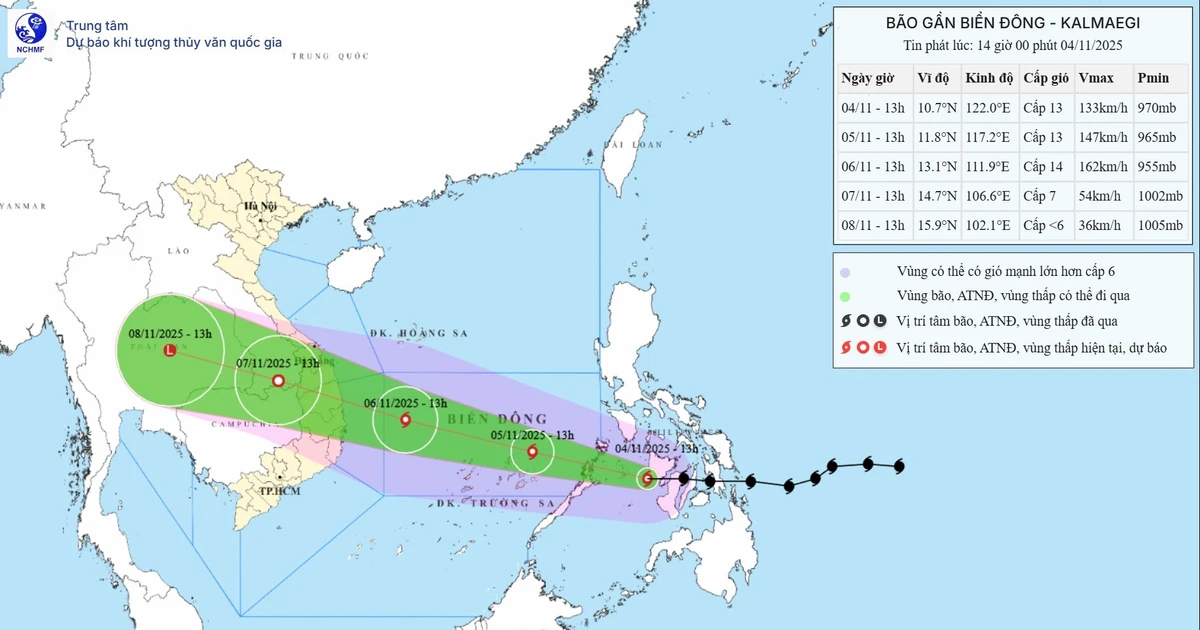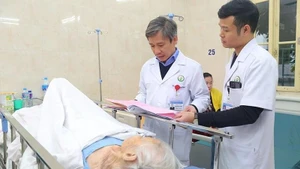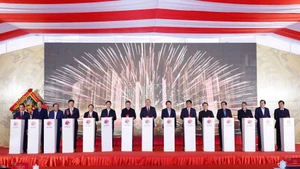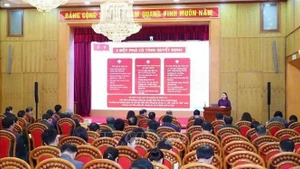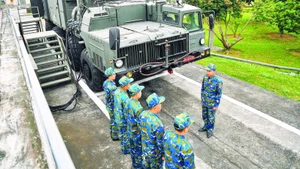According to the National Centre for Hydro-Meteorological Forecasting (NCHMF), after entering the East Sea, Typhoon Kalmaegi, the 13th storm hitting the waters this year, is forecast to head towards central and south central Viet Nam.
Its arrival follows record-breaking rains and floods in central Viet Nam that have caused severe losses. As of the morning of November 4, 40 people had died, six were missing, and 76 injured; 104 houses were destroyed, 453 damaged, and many schools, hospitals, roads, and irrigation facilities severely affected.
To proactively respond to Typhoon Kalmaegi and subsequent flooding, the Prime Minister instructed localities, particularly from Da Nang to Khanh Hoa, to closely monitor the storm’s developments, review response plans, and deploy preventive measures proactively from early and afar, and be ready for the worst-case scenario.
All fishing vessels must be urgently called to safe harbours. Coastal provinces are advised to restrict or suspend sea activities when necessary. Authorities are to mobilise personnel, equipment, and evacuation plans to relocate residents from high-risk areas before the typhoon makes landfall, and to ensure readiness for rescue operations.
The Government leader also directed the Ministry of Agriculture and Environment to coordinate with the Ministry of Industry and Trade (MoIT) and localities in managing irrigation and hydropower reservoirs flexibly and safely, lowering water levels to absorb potential floodwaters.
The MoIT must ensure adequate supplies of essential goods and prevent unreasonable price hikes.
The ministries of National Defence, Public Security, Construction, Health, and Education and Training, and other relevant bodies are requested to activate emergency response plans, ensuring safety for people and infrastructure within their areas of responsibility.
Viet Nam Television, the Voice of Viet Nam, the Viet Nam News Agency, and other media outlets are tasked with providing continuous updates on the storm’s developments and broadcasting safety guidance to help minimise damage.
Deputy Prime Minister Tran Hong Ha will oversee coordination between ministries and localities, while the Government Office will monitor and ensure strict implementation of the dispatch, promptly reporting emerging issues to the Prime Minister.
